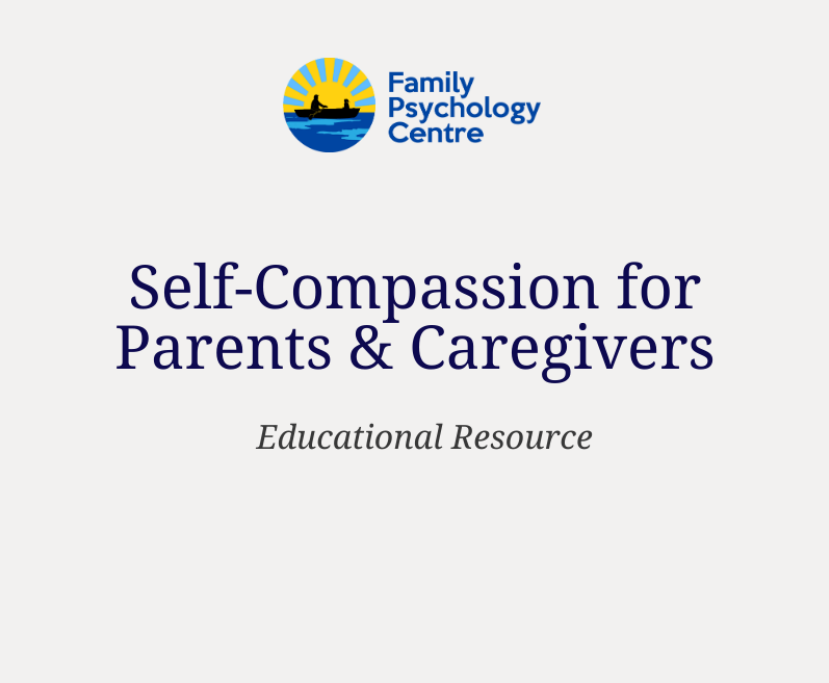INTRODUCTION
1
What is self-compassion?
-
Adaptive form of self-acceptance, emotion regulator and coping strategy.
-
Self-compassion is “compassion turned inward” and refers to how we perceive ourselves in experiences of seeming failure, inadequacy, or personal suffering.
Three elements of self-compassion

i) Self-kindness
Refers to the tendency to be kind, understanding and accepting toward oneself rather than harshly judgmental or self-critical when faced with adversity or suffering.

ii) Mindfulness
Involves awareness and acceptance of the present-moment experience in a clear and balanced way, neither avoiding nor ruminating on painful emotions.

iii) Common Humanity
Fosters feelings of connectedness by recognizing one’s experience as part of the larger human experience rather than something that sets one apart from others.
INTRODUCTION
2

Why practice self-compassion?
-
May help to make negative thoughts and feelings (i.e. self-criticism, guilt, shame) more manageable in the moment.
-
Promotes gratitude, optimism, positive emotions, and self-awareness during difficult situations.
-
Considered a protective factor for the parent and child’s mental health.
-
• Encourages self-care and help-seeking behaviours.
-
May improve communication, responsiveness, sensitivity and use of EFFT strategies when interacting with loved ones.
-
With practice – this technique is thought to increase resilience, which can help parents to re-engage in adaptive coping strategies and pursue their goals even after feelings of seeming failure or inadequacy.

ACTIVITY #1
3
How would you treat a friend?
Please take out a sheet of paper and answer the following questions:
-
First, think about times when a close friend feels really bad about him or herself or is really struggling in some way. How would you respond to your friend in this situation (especially when you’re at your best)? Please write down what you typically do, what you say, and note the tone in which you typically talk to your friends.
-
Now think about times when you feel bad about yourself or are struggling. How do you typically respond to yourself in these situations? Please write down what you typically do, what you say, and note the tone in which you talk to yourself.
-
Did you notice a difference? If so, ask yourself why. What factors or fears come into play that lead you to treat yourself and others so differently?
-
) Please write down how you think things might change if you responded to yourself in the same way you typically respond to a close friend when you’re suffering.
Why not try treating yourself like a good friend and see what happens?

ACTIVITY #2
4
Self-compassion break
Think of a situation in your life that is difficult, that is causing you stress. Call the situation to mind, and see if you can actually feel the stress and emotional discomfort in your body.
Now, say to yourself:
I) This is a moment of suffering
That’s mindfulness.
Other options include:
-
This hurts. Ouch. This is stress
II) Suffering is a part of life
That’s common humanity.
Other options include:
-
Other people feel this way. I’m not alone. We all struggle in our lives.
Now, put your hands over your heart, feel the warmth of your hands and the gentle touch of your hands on your chest. Or adopt the soothing touch you discovered felt right for you.
III) May I be kind to myself
You can also ask yourself, “What do I need to hear right now to express kindness to myself?”
Other options include:
-
May I give myself the compassion that I need. May I learn to accept myself as I am. May I forgive myself. May I be strong. May I be patient.
This practice can be used any time of day or night, and will help you remember to evoke the three aspects of self-compassion when you need it most.
CONCLUSIONS
5
Some final thoughts…
-
It’s important to view self-compassion as a trait or characteristic of the self that requires practice and nurturing. Obvious changes to our thinking and emotions may not be noticeable right away.
-
Through even brief acts of self-kindness, patience or self-care you are cultivating a self-compassionate view which can foster social connection and more positive mental health into the future.

Resources
-
Self-compassion activities are from Dr. Kristin Neff’s website and have been reprinted with permission © 2021 . https://self-compassion.org/
-
Neff, K. & Germer, C. (2018). The Mindful Self-Compassion Workbook. New York: Guilford Press.








